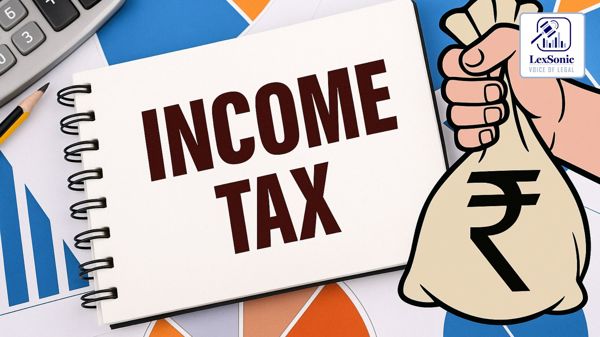Challenging Reopening of Income Tax Assessments: When Suspicion Falls Short of Legal Grounds.
01 March 2024
Income Tax >> Tax Laws
In a recent case, the Bombay High Court examined the legality of reopening income tax assessments under Section 148 of the Income Tax Act, 1961, where the Assessing Officer (AO) relied on information received from the Central Information Branch (CIB) regarding large share transactions. The Court ruled that the reopening notices, which were based on mere suspicions rather than a solid belief that income had escaped assessment, were not valid.
Background:
The petitioner, a Chartered Accountant, had filed income tax returns for the assessment years (AY) 2010-2011, 2011-2012, and 2012-2013. These returns were processed under Section 143(1) of the Income Tax Act, which deals with the processing of returns without any scrutiny. However, on 20th March 2015, the petitioner received identical notices for reopening the assessments for these years under Section 148 of the Act. The notices cited the receipt of CIB information, which indicated that the petitioner had engaged in large share transactions during these years. The values of the share transactions were Rs. 29.43 crore for AY 2010-11, Rs. 18.11 crore for AY 2011-12, and Rs. 66.16 crore for AY 2012-13. Based on this information, the AO stated that they had reason to believe that income chargeable to tax had escaped assessment and thus, required further verification through reopening.

Rejection of Objections:
In response, the petitioner filed detailed objections on 27th July 2015, challenging the reopening of the assessments. However, the AO rejected these objections on 6th November 2015. The rejection order acknowledged that the information from CIB might not be genuine but still maintained that further investigation was necessary. The AO's stance was that this information alone was sufficient to form an independent belief to reopen the assessments. The petitioner then approached the Bombay High Court, filing a writ petition to challenge the reopening notices and the rejection of their objections.
The Court's Analysis:
The core issue before the Court was whether the AO had valid reasons to believe that income had escaped assessment for the relevant assessment years. The Court found that the notices, as issued, did not provide sufficient reasons for such a belief. The reasons recorded in the notices were based solely on the information provided by the CIB regarding share transactions. However, the notices failed to explain how this information led the AO to believe that the income chargeable to tax had actually escaped assessment.
The Court emphasized that under Section 147 of the Income Tax Act, the AO must have a "reason to believe" that income has escaped assessment, not just a "reason to suspect" or initiate a fishing inquiry. In this case, the AO had not shown any concrete evidence or explanation to substantiate the belief that the income had indeed escaped taxation. Instead, the AO was merely seeking to verify the information without any clear indication that income had escaped assessment. The Court noted that this amounted to a fishing inquiry, which is impermissible under the law.
Legal Precedents:
The Court referred to key legal precedents that highlighted the importance of the "reason to believe" standard. In the case of Darpan P. Chandaliya v. Income Tax Officer (2023), the Court had already held that an inquiry based on the mere receipt of information does not meet the legal threshold for reopening an assessment. The information from the CIB could not serve as a valid foundation for the reopening of assessments unless it directly led to a reasonable belief that income had escaped assessment.
Furthermore, in the case of Nivi Trading Limited v. Union of India (2015), the Court had observed that merely seeking additional details or verification does not satisfy the legal requirement for reopening under Section 147. The AO’s desire to "examine" the share transactions without linking them to any specific escapement of income was insufficient to justify reopening the assessments.
Conclusion:
The Bombay High Court concluded that the reopening notices issued by the AO were based on mere suspicions rather than a legitimate belief that income had escaped assessment. Since the AO failed to demonstrate a valid reason to believe that income had escaped assessment, the notices were quashed. The Court also held that reopening assessments based on vague information, without establishing a clear connection to the escapement of income, violates the legal standards set by Section 147 of the Income Tax Act.
As a result, the High Court quashed both the reopening notices and the order rejecting the petitioner’s objections. This judgment underscores the need for the AO to have a genuine, well-supported belief that income has escaped assessment before initiating the reopening process. The Court's ruling also reaffirms that reopening proceedings cannot be used as a tool for general investigation or fishing expeditions.
